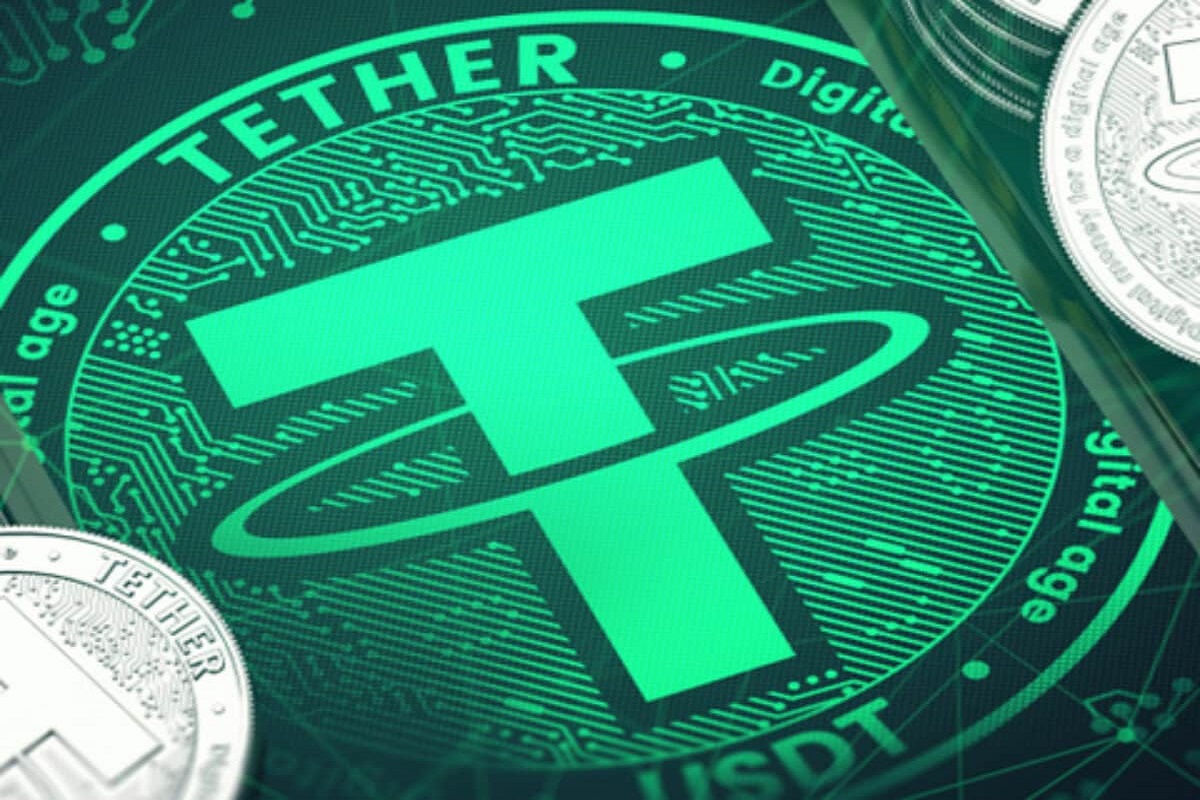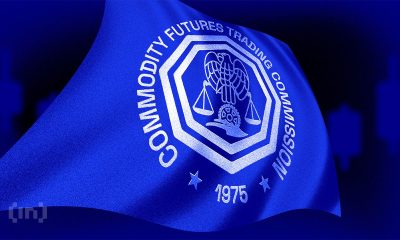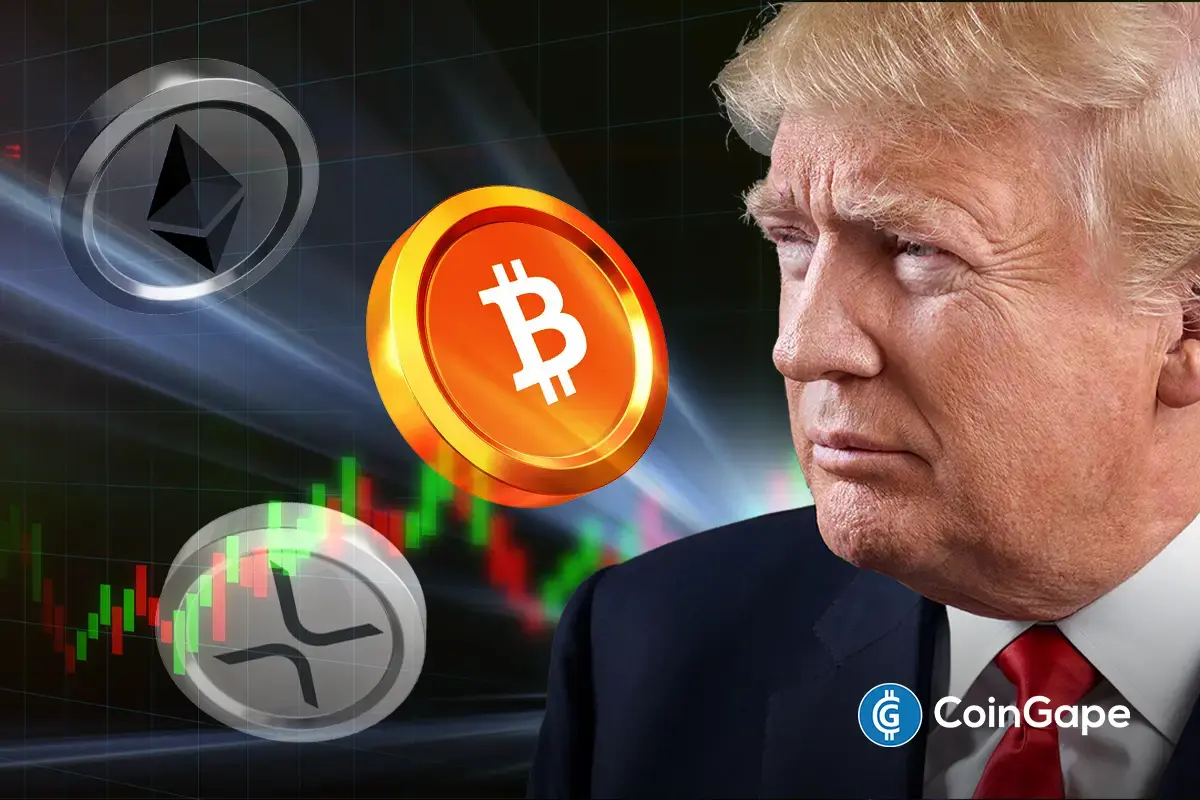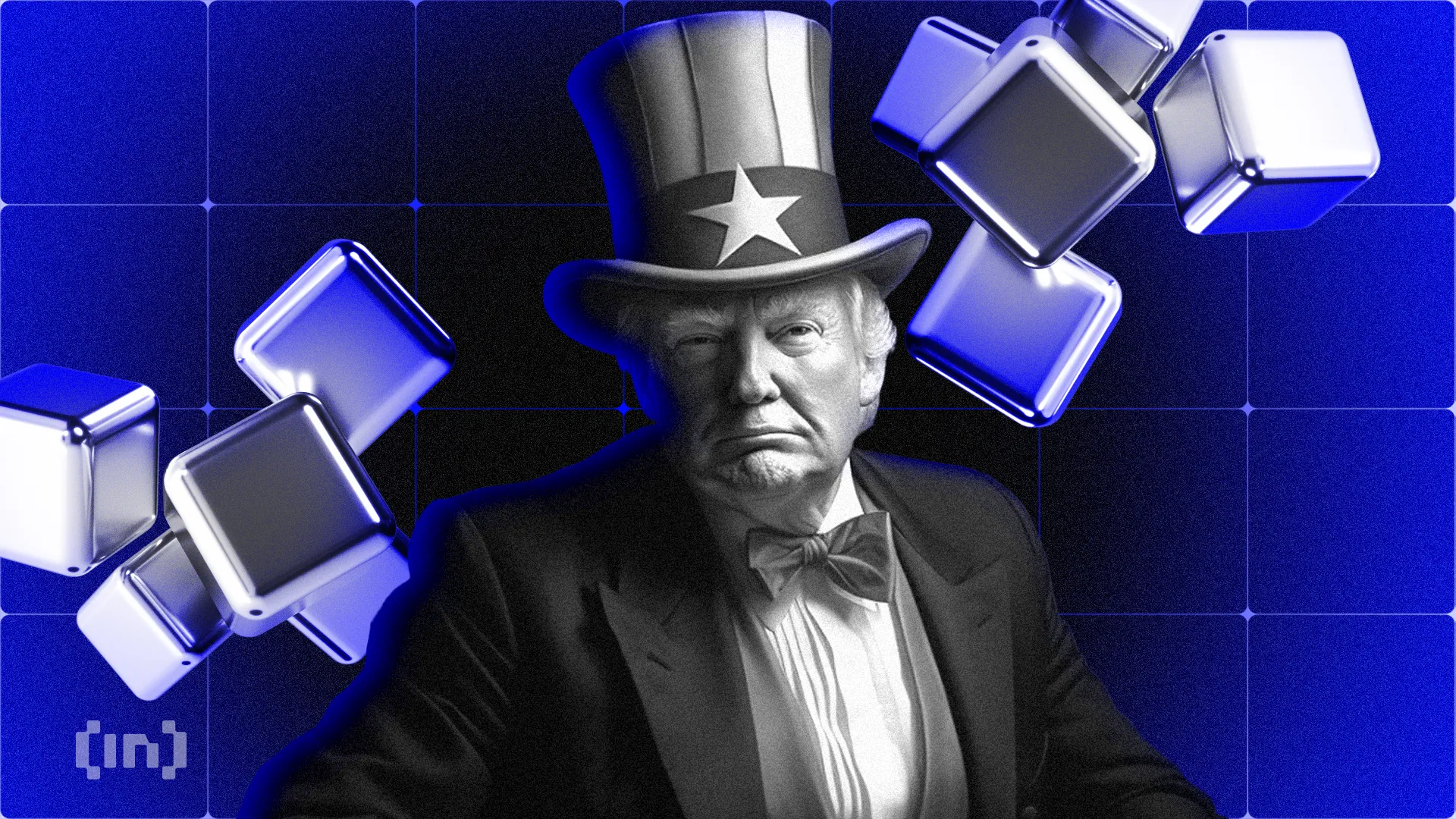Regulation
Tether’s CEO Paolo Ardoino Calls For Stable Crypto Regulations In US

At the recent DC Fintech Week, Tether’s CEO, Paolo Ardoino, emphasized the need for sensible crypto regulations in the United States. During a remote presentation, Ardoino discussed Tether’s proactive engagement with global regulators and its commitment to compliance.
The stablecoin issuer CEO highlighted the importance of developing regulatory frameworks that foster innovation while ensuring consumer protection.
Tether CEO Urges US to Adopt Fair Crypto Regulations
In his appearance via video link at DC Fintech Week, Tether’s CEO, Paolo Ardoino, expressed optimism that the U.S. will soon introduce clear and effective regulations. He stressed that these regulations should ensure the protection of end users while allowing stablecoin innovations to flourish.
More so, Tether’s CEO pointed out that despite being Italian, he has seen the US lead the technological developments over the years. He emphasized,
“I think it’s very, very important that sensible crypto regulations and stablecoin regulations will come to fruition in a way that will protect the end users.”
Ardoino added that these regulations would allow stablecoins like USDT to be a “lifeline” for people in countries facing economic challenges.
Additionally, the Tether CEO said that the U.S. holds a crucial role in the global financial system. According to him, balanced crypto regulations could enhance stability in the market. He expressed confidence that regulatory frameworks in the U.S. will emerge to support both innovation and consumer safeguards.
Cooperation With Law Enforcement
During his presentation, Ardoino highlighted Tether’s cooperation with law enforcement agencies in 45 countries, including the FBI and the U.S. Secret Service. He noted that Tether has strengthened its compliance over the years, moving past its earlier reputation for resistance to regulatory oversight.
Ardoino remarked, citing its engagements in numerous countries,
“It would be difficult to find another financial firm that matches the level of law-enforcement cooperation and number of agency relationships that Tether has.”
He also pointed out that Tether’s proactive stance on compliance is backed by a 104% over-collateralized reserve, with 84% of its assets held in U.S. Treasuries. This, he argued, makes Tether highly resilient during periods of redemptions, stating that the company survived billions in redemptions in 2022, “a type of pressure that almost no bank was able to survive.”
The USDT company is exploring lending to commodities traders, aiming to provide quicker, easier access to capital compared to traditional banks. This new service could impact global commodity trading by offering faster settlements and fewer regulatory hurdles.
Doubling Down on Transparency and Communication
Ardoino emphasized that Tether is “doubling down” on transparency and communication. Acknowledging past criticism regarding Tether’s lack of transparency, particularly around its reserve backing, Ardoino reaffirmed the company’s commitment to improving its disclosures.
He stressed that Tether’s strategy now focuses on demonstrating that the company’s financial health is solid, with significant U.S. Treasury holdings ensuring liquidity.
“We are purchasing immense quantities of U.S. debt,” Ardoino stated, underscoring Tether’s role in providing access to U.S. dollar-based assets for emerging markets. He noted that Tether aims to expose these markets to “the best currency in the world” through its stablecoin offerings.
In addition, Congressman French Hill, speaking at the same event, provided insight into the legislative prospects for crypto regulations. Hill, who chairs the crypto panel in the House Financial Services Committee, suggested that the “lame duck” session may offer a window for advancing stablecoin and crypto legislation.
He mentioned that a gap in the defense spending package might allow financial services legislation to progress. However, he noted the legislative outcome could depend on the 2024 U.S. presidential election results.
If legislation does not pass this year, Hill said that crypto regulations would likely become a priority for 2025, especially if there are changes in leadership on the House Financial Services Committee. He added that regulations would remain a focus, with potential shifts based on the election outcome.
Disclaimer: The presented content may include the personal opinion of the author and is subject to market condition. Do your market research before investing in cryptocurrencies. The author or the publication does not hold any responsibility for your personal financial loss.
Regulation
USDC Issuer Circle Set To File IPO In April, Here’s All

USDC issuer Circle is reportedly set to file its initial public offering (IPO) in April as part of the firm’s plans to finally go public. The stablecoin issuer is allegedly already working with top financial institutions to achieve this move.
Circle To File IPO In Late April
According to a Fortune report, Circle is looking to file its IPO in late April, although the listing period remains uncertain. The report noted that when a company files to go public, its shares usually begin trading four weeks later, indicating that the listing could occur in May. However, there is also a scenario where the IPO process could drag on for months.
The stablecoin issuer is reportedly working with investment banks JPMorgan Chase and Citi to achieve its long-anticipated IPO. The firm had previously tried to go public in 2021 under a SPAC arrangement with a shell company.
The US SEC failed to sign off on this arrangement back then, and the company eventually scrapped these IPO plans by the end of 2022 when the crypto exchange FTX collapsed and the broader crypto market experienced a downturn.
Revelation about Circle’s IPO plans comes just days after the stablecoin issuer partnered with NYSE’s parent company to explore USDC’s use in traditional finance (TradFi). Meanwhile, the USDC stablecoin recently launched in Japan following approval from the country’s regulator. Notably, USDC is the first and only global dollar stablecoin approved under Japan’s stablecoin framework.
An Easier Path Now For The Stablecoin Issuer
Circle will likely face less resistance for its IPO plans under the current SEC administration. Under acting Chair Mark Uyeda, the Commission has shown its willingness to work hand in hand with crypto firms, which was missing under Gary Gensler’s administration.
US SEC Chair nominee Paul Atkins has also shown his willingness to change the approach that Gensler’s administration adopted towards crypto firms. During his nomination hearing, the SEC Chair nominee promised to prioritize providing regulatory clarity for the industry.
Circle’s IPO listing would be the biggest since the top crypto exchange Coinbase went public in 2021. Interestingly, Coinbase owns an equity stake in the crypto firm.
The firm’s USDC is currently the second-largest stablecoin by market cap, only behind Tether’s USDT. The stablecoin industry is heating up as more financial institutions look to develop their own stablecoin.
Donald Trump’s World Liberty Financial recently revealed plans to launch its USD1 stablecoin, while asset manager Fidelity is also considering doing so.
Disclaimer: The presented content may include the personal opinion of the author and is subject to market condition. Do your market research before investing in cryptocurrencies. The author or the publication does not hold any responsibility for your personal financial loss.
Regulation
Japan Set To Classify Cryptocurrencies As Financial Products, Here’s All

Cryptocurrency investors in Japan are bracing for impact following a plan to reclassify digital assets as financial products. While the plan has elicited excitement from cryptocurrency enthusiasts in the Far East, the ambitious plan will have to scale several legislative hurdles.
Japan Targets Reclassification Of Cryptocurrencies As Financial Products
According to a report by Nikkei, Japan’s Financial Services Agency (FSA) is inching toward classifying cryptocurrencies as financial products. Per the report, the FSA intends to achieve the reclassification via an amendment to the Financial Instruments and Exchange Act.
Currently, digital assets in Japan are considered crypto assets conferred with property rights and seen as payment means. Under the FSA’s plans, cryptocurrencies in Japan will be treated as financial products in the same manner as traditional financial products.
The FSA says it will adopt a slow and steady approach toward the reclassification, carrying out “a private expert study group” to test the waters. If everything goes according to plan, the FSA will submit the amended bill to Parliament in early 2026.
The classification of cryptocurrencies as financial products will have far-reaching consequences for the local ecosystem. Experts say treating cryptocurrencies as financial products will bring Japan closer to a crypto ETF launch amid a changing regulatory landscape.
Furthermore, the move may lower current cryptocurrency taxation for local investors since existing capital market rules will apply to the asset class.
A Fresh Bill For Crypto Insider Trading Is Underway
Apart from the reclassification, the FSA disclosed plans for new legislation against insider trading. The move flows treating cryptocurrencies as financial products and will strengthen existing investor protection rules.
“It is a direction to establish a new insider trading regulation that prohibits trading based on unpublished internal information,” said the FSA. “We will develop laws to prevent unfair transactions.”
However, Japan’s cryptocurrency scene is heating up to a boil, driven by local and international players. Last week, stablecoin issuer Circle secured approval from the FSA for USDC with top exchanges set to list the stablecoin.
Japan’s Metaplanet has tapped Eric Trump to join its Strategic Board of Advisors as it continues to load up Bitcoin.
Disclaimer: The presented content may include the personal opinion of the author and is subject to market condition. Do your market research before investing in cryptocurrencies. The author or the publication does not hold any responsibility for your personal financial loss.
Regulation
Kentucky Governor Signs Off On ‘Bitcoin Rights’ Bill, Strengthening Crypto Protections


In what is being dubbed a major development in the crypto regulation space, the Governor of the US state of Kentucky, Andy Beshear, has signed the ‘Bitcoin Rights’ bill into law. The law promises to safeguard protections for Bitcoin (BTC) users.
Bitcoin Rights Bill Comes Into Effect
Crypto regulations continue to evolve under pro-crypto US President Donald Trump’s administration. In the latest development, Kentucky has become the newest state to enshrine protections for digital asset users.
In an X post published on March 24, crypto advocacy group Satoshi Action Fund announced that Governor Beshear had signed the much-anticipated Bitcoin Rights bill into law. The post stated:
The right to self-custody, run a node, and use of digital assets is now protected for millions of Americans without fear of discrimination.
The bill was first introduced to the Kentucky House by Rep. Adam Bowling on February 19. According to the bill’s description, it seeks to safeguard users’ rights to use digital assets and self-custody wallets. Additionally, it aims to prohibit local zoning changes that discriminate against crypto mining operations.
The legislation outlines guidelines for running a digital asset node and excludes digital asset mining from money transmitter license requirements. It also clarifies that crypto mining or staking is not considered an offer or sale of securities.
On February 28, the bill passed Kentucky’s House of Representatives with a unanimous vote of all 91 representatives in favor. It later passed the Kentucky Senate on March 13, receiving backing from all 37 senators.
Kentucky’s proactive stance toward cryptocurrencies isn’t new. Earlier this year, the state became the 16th US state to introduce legislation seeking to create a Bitcoin strategic reserve.
Meanwhile, neighboring state Arizona is also joining the crypto movement. A recent X post by Bitcoin Laws revealed that Arizona’s House Rules Committee has passed two Bitcoin reserve bills — SB1373 and SB1025. These bills will now head to a full floor vote.
Renewed Optimism Under Trump Administration
Following Trump’s victory in the November presidential election, cryptocurrency regulations in the US are evolving rapidly, with many states introducing legislation aimed at strengthening their digital asset ecosystems and attracting crypto businesses.
Positive changes in crypto regulations are encouraging industry businesses to expand. For instance, leading crypto trading platform Coinbase recently announced plans to hire 1,000 employees in the US.
The Trump administration has also witnessed several lawsuits being dropped against major crypto entities, including Kraken, Coinbase, Gemini, and others. At press time, Bitcoin trades at $87,399, down 0.2% in the past 24 hours.

Featured Image from Unsplash.com, chart from TradingView.com

Editorial Process for bitcoinist is centered on delivering thoroughly researched, accurate, and unbiased content. We uphold strict sourcing standards, and each page undergoes diligent review by our team of top technology experts and seasoned editors. This process ensures the integrity, relevance, and value of our content for our readers.
-

 Market18 hours ago
Market18 hours agoBitcoin Price Battles Key Hurdles—Is a Breakout Still Possible?
-

 Market21 hours ago
Market21 hours agoCFTC’s Crypto Market Overhaul Under New Chair Brian Quintenz
-

 Altcoin13 hours ago
Altcoin13 hours agoWill XRP, SOL, ADA Make the List?
-

 Altcoin20 hours ago
Altcoin20 hours agoA Make or Break Situation As Ripple Crypto Flirts Around $2
-

 Market20 hours ago
Market20 hours agoXRP Bulls Fight Back—Is a Major Move Coming?
-

 Market19 hours ago
Market19 hours agoIs CZ’s April Fool’s Joke a Crypto Reality or Just Fun?
-

 Bitcoin16 hours ago
Bitcoin16 hours agoBig Bitcoin Buy Coming? Saylor Drops a Hint as Strategy Shifts
-

 Market23 hours ago
Market23 hours agoEthereum Price Faces a Tough Test—Can It Clear the Hurdle?


















✓ Share: